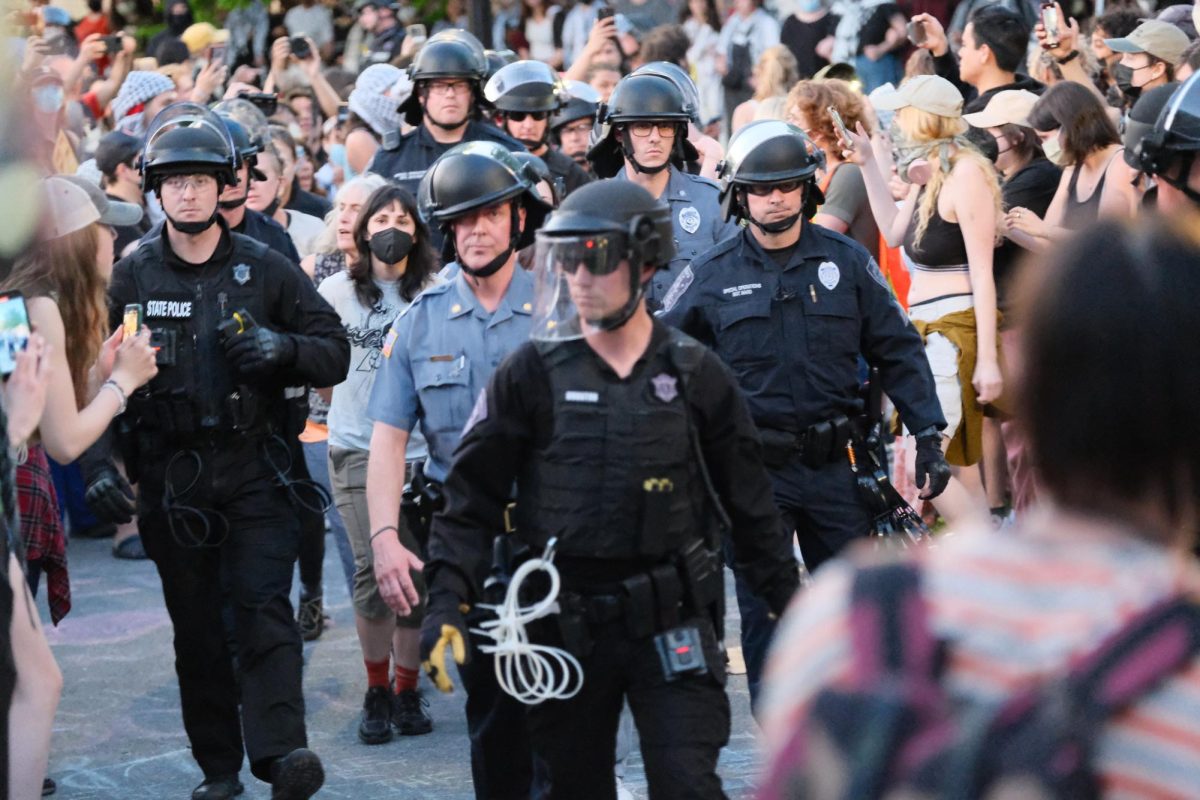
Freshmen at the University of Massachusetts have two new programs this year that strive to help them with academic success.
The Provost’s Working Group on Student Success, a group that develops ways to support residentially-based academic success programs and services, is piloting two new programs in the first-year residence halls this spring.
The peer mentor program, which was proposed to be cut last semester, will also continue this year.
Seven of the first-year buildings will keep the peer mentor program, which allows upperclassmen to live in the halls and offer students guidance on both academics and University systems, such as SPIRE.
“Our interest is to make sure that we get it as close to right as possible even if that means continuing to do something that has been in place or something new or some combination of things,” said Eddie Hull, executive director of Residential Life. “I think that is what this pilot will help us understand.”
The first new program is to add academic success coaches in residence halls.
Five of the communities will have academic success coaches, a new position where students, trained by the Office of Undergraduate Advising, will work in the residence halls more than 12 hours a week and will also teach students how to navigate UMass systems.
“The primary role of the academic success coaches are to provide programmatic initiative related to academic success,” said Jean MacKimmie, interim director of residence education.
MacKimmie listed pre-requisite workshops, SPIRE seminars and trips to resources on campus like the Learning Commons as some examples of what the programs could be.
Undergraduate Advising, not Residential Life, will determine the content taught by the academic success coaches, MacKimmie said.
The second pilot program is an extension of the Learning Resource Center, a facility located in the library that offers students help with specific classes and finding academic research jobs.
James Hall, located in the Southwest Residential Area, will host a supplemental instruction class for Math 104, a course often taken by freshmen. This class, taught by an undergraduate student, will review the material covered in the Math 104 class.
“We are treating exactly the same as all the other SIs, except that it is in a residential building,” said Susan Bronstein, director of the Learning Resource Center.
The Learning Resource Center will also be responsible for an Undergraduate Resource and Studies adviser, who will replace peer mentors in Mary Lyon dormitory in the Northeast Residential Area.
The adviser will be in the dorm nine hours a week helping students find academic research opportunities both on and off campus.
The walk-in service, like the SI, will be available to all students on campus, not just Mary Lyon residents, Bronstein said.
She said other universities have experimented with putting supplemental instruction programs into residential spaces and have had limited success.
“I do know – because I do read the literature – that other schools have tried to interject SI into living and learning communities and residence halls and by and large schools do it for a little bit and then give it up because it doesn’t work,” Bronstein said.
She said she has given the pilot program its best possible chance of succeeding by picking class that many students have requested through LRC and using an experience supplemental instructor.
“I did my level best to give it its best possible chance of success,” Bronstein said.
She also noted that the pilot program is not a replacement for the peer mentors. The difference, she said, is that employees of the LRC are instructed to keep a distance between themselves and students. Peer mentors, meanwhile, can make those personal connections, she said.
“They are not even apples and oranges because that’s all fruit,” Bronstein said. “They are vegetables and fruits.”
The halls that offer the pilot programs will not have peer mentors.
Last semester, many students protested the proposed peer mentor cut. Several students said the 24 hour access to peer mentors was critical to their success. These protests sparked the creation of the pilot programs and the WCGSS.
In an interview with the Massachusetts Daily Collegian in December 2011, junior Casey Waugh said, “I think they are kind of screwing over future freshman classes,” by cutting the program.
The pilot programs will be assessed at the end of the academic year, Hull said.
Katie Landeck can be reached at [email protected].












